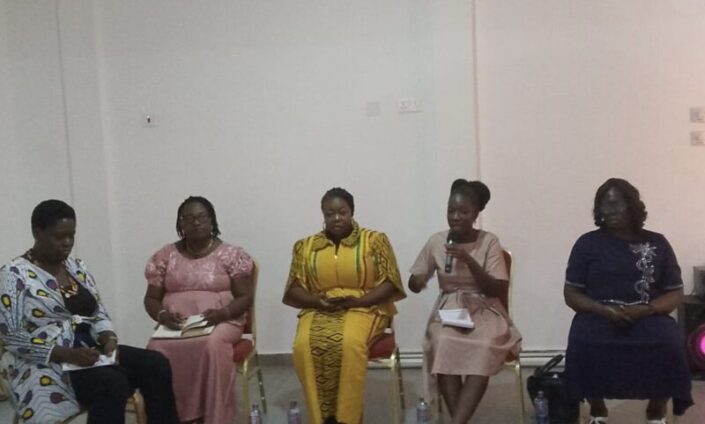Participants at a Women Economic Dialogue Forum have demanded that the next government after this year’s elections must prioritise the full enforcement of C190 to enable women to actively participate in the country’s socio-economic development.
C190, known as the Violence and harassment convention, is a legally binding international treaty that seeks to end violence and harassment in the workplace.
This, the women believed when fully enforced, would not only enhance their protection and safety but also contribute significantly towards maximising economic and employment opportunities whilst addressing other critical issues relating to gender-based violence among others.
The demand was contained in a petition, developed and presented during a forum in Tamale organised by the Friedrich Ebert Stiftung Economic Policy Competence Centre in collaboration with the Savannah Women Integrated Development Agency (SWIDA-Ghana) and the Youth Action on Reproductive Order (YARO).
The forum, held under the theme: “Towards Sustainable Development: The Economy We Want”, was to provide women, from different sectors of the economy, the platform to engage with political parties and seek clarification on the content and efficacy of their manifestos.
It was attended by about 60 women from the Northern, Upper East, Upper West, North East and the Savannah Regions.
Madam Failatu Alhassan, Gender Activist and Administrator at the University for Development Studies (UDS), read the petition to the political parties after round table discussions.
The petition also called for the swift enforcement of environmental protection laws to help cushion women and other vulnerable groups as well as enhance their resilience against the negative impact of climate change.
It further demanded that the next government minimise interference in the provision of social interventions as well as strengthen institutions to ensure fair implementation of gender equality and social inclusion-related policies and programmes.
The petition also called for adequate resourcing of the Department of Gender to effectively implement the Affirmative Action Law and also put in place policies to recognise the different needs of persons with disabilities and to support them accordingly.
Hajia Alima Sagito-Saeed, Executive Director of SWIDA-Ghana, emphasised the need to hold leaders accountable and to advocate inclusive and targeted policies for the benefit of all citizens.
Mr. Douri Bennin Hajei, Executive Director of YARO underscored the need for political parties to demonstrate more commitment to fulfilling their manifestos to enable deprived and vulnerable groups and households to lead more decent lifestyles.
Mrs. Alhassan Bushira, Northern Regional Director, Department of Gender reiterated the need to invest more in remote communities where most deprived households and individuals lack necessities and support to undertake economic activities.
Latest Stories
-
NPP Yendi chairman suspends 184 members for breach of constitution
9 minutes -
Ghanaian media making strides despite challenges – Mercy Adjabeng commends progress
38 minutes -
Ablakwa blows whistle on ADB’s $750K ‘Midnight Contract’ amid transition tensions
47 minutes -
Elon Musk’s ‘social experiment on humanity’: How X evolved in 2024
1 hour -
At least 69 migrants dead after boat sank off Morocco on Dec. 19, Mali says
1 hour -
Telecel Ghana Foundation’s Healthfest impacts over 400 residents in Techiman
2 hours -
EPA issues alert over Harmattan induced air pollution
2 hours -
South Korea votes to impeach acting president Han Duck-soo
2 hours -
Supreme Court to hear NDC’s challenge against High Court-ordered election re-collation today
3 hours -
The Nigerian watch-lover lost in time
3 hours -
At least 10 killed after Nigerian military jet targeting bandits bomb civilians
3 hours -
Regional challenges cost Egypt around $7bn of Suez Canal revenues in 2024, Sisi says
3 hours -
Morocco proposes family law reforms to improve women’s rights
4 hours -
Bawumia could have conceded defeat earlier – Omane Boamah
4 hours -
Upper East, North East: PURC receives 591 complaints, resolves 550 in 2024
4 hours

